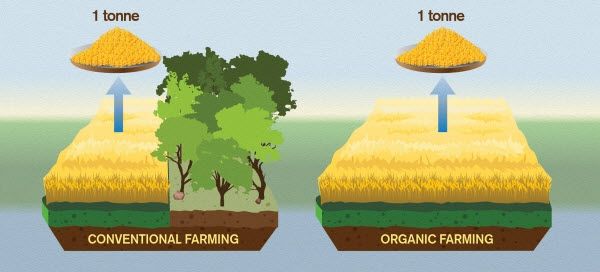This is the finding of a new international study involving Chalmers University of Technology, Sweden, published in the journal Nature. The researchers developed a new method for assessing the climate impact from land-use, and used this, along with other methods, to compare organic and conventional food production. The results show that organic food can result in much greater emissions.
“Our study shows that organic peas, farmed in Sweden, have around a 50 percent bigger climate impact than conventionally farmed peas. For some foodstuffs, there is an even bigger difference – for example, with organic Swedish winter wheat the difference is closer to 70 percent,” says Stefan Wirsenius, an associate professor from Chalmers, and one of those responsible for the study.
The reason why organic food is so much worse for the climate is that the yields per hectare are much lower, primarily because fertilisers are not used. To produce the same amount of organic food, you therefore need a much bigger area of land. The ground-breaking aspect of the new study is the conclusion that this difference in land usage results in organic food causing a much larger climate impact.
Continue reading at Chalmers University of Technology
Image via Chalmers University of Technology


